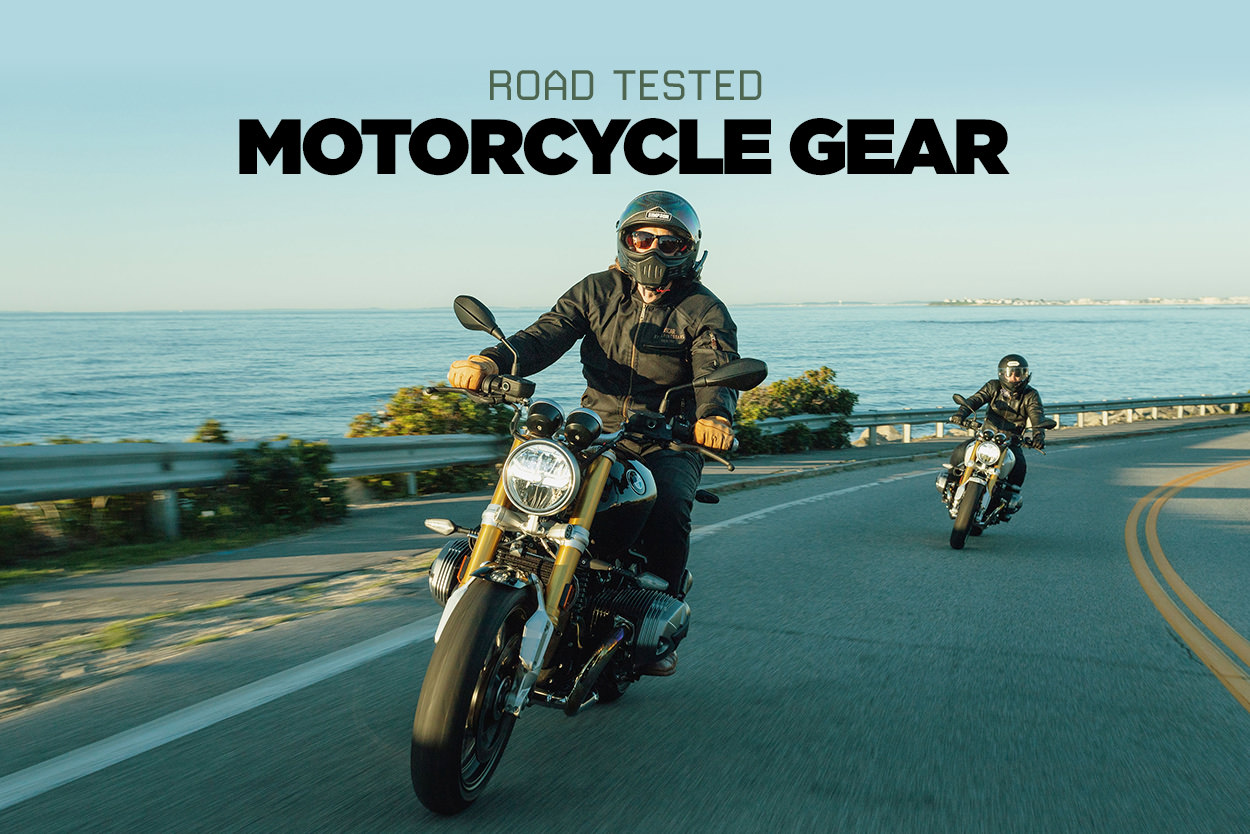
Our friends at Iron & Air recently spent some time exploring their back yard, New Hampshire, to document all their home state has to offer. The 500-mile jaunt called for gear that would function well on the bike—but be comfortable and casual enough to keep on while doing touristy things in between riding.
Editor-in-chief Adam Fitzgerald weighs in on the pieces he picked out: a bomber jacket from Alpinestars, riding denims from Pando Moto, and a Sena comms unit that kept the team connected.
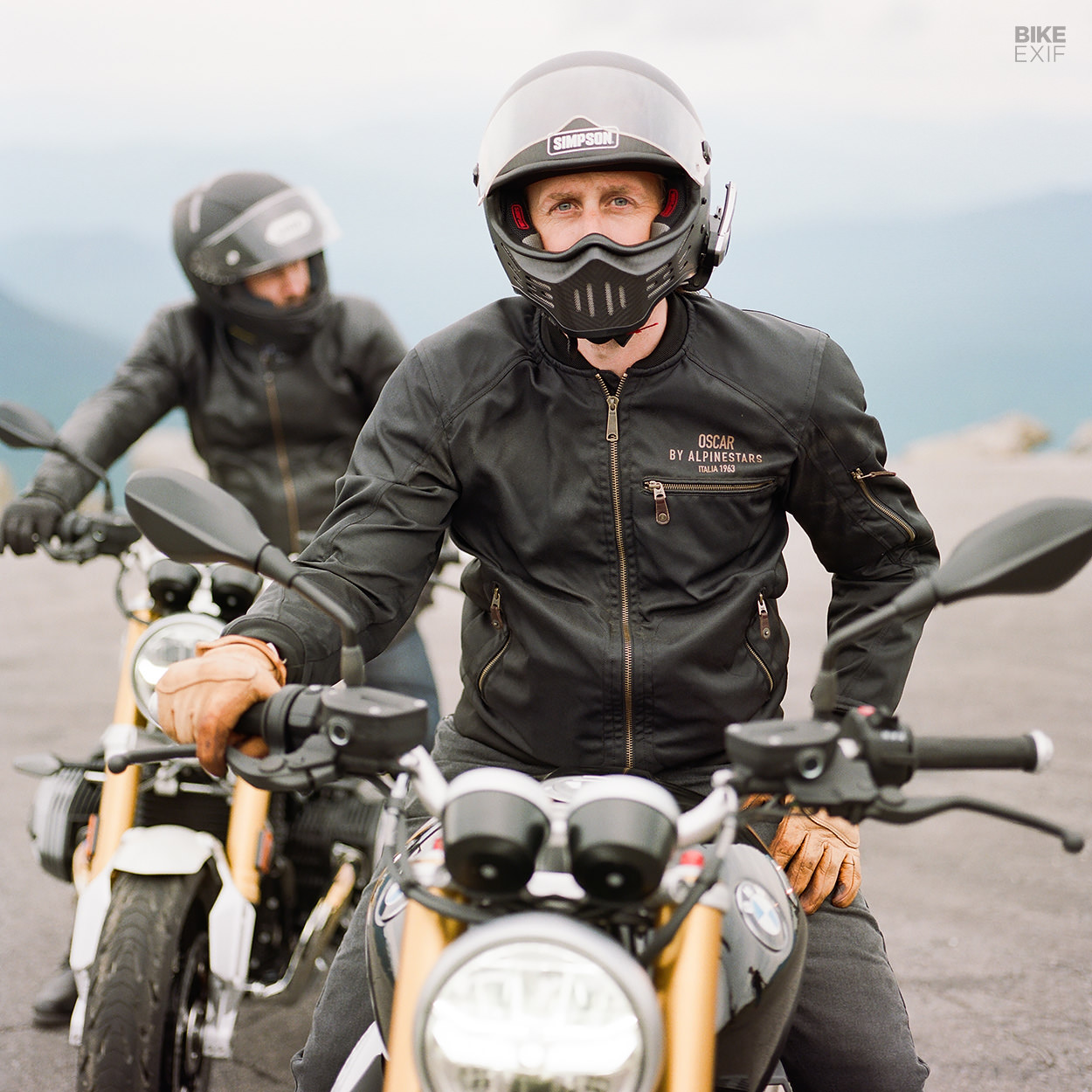
Alpinestars Oscar Bomber jacket The Oscar Bomber jacket dances flippantly in the gray area between fashion and function. From the outside, there’s little to differentiate this from any ordinary bomber-style jacket. It gets all of the style points for a jacket that can be worn on or off the bike, without shouting, “Look! I’m a motorcyclist!”
However, throw the Oscar Bomber on and you’ll realize it’s anything but ordinary. For starters, it’s heavy.
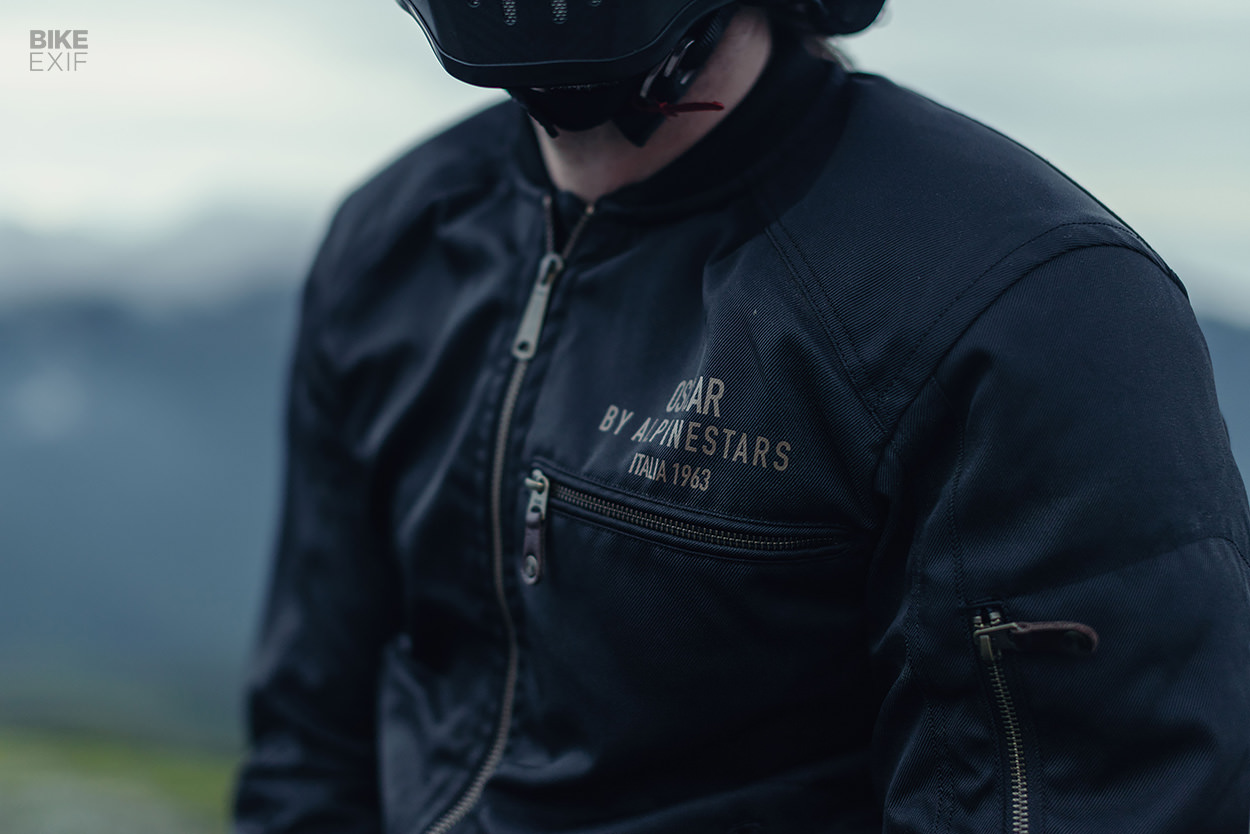
The outer is constructed from a durable, heavyweight twill weave of polyamide (nylon) and polyester, which offers less abrasion resistance than Kevlar or Dyneema, but more peace of mind than something like waxed canvas. An additional coating is added to the fabric for water resistance—though I (luckily) didn’t get to test the validity of Alpinestar’s claim of “effective water protection.”
The inner lining is a lighter nylon weave, with non-removable CE Level 1 Nucleon Flex Plus armor built into the shoulders and elbows. (Chest and back protectors are available separately.) The shoulders and elbows also feature heavy-duty 600 Denier polyester reinforcements for added abrasion resistance, and the Nucleon armor’s flexibility makes it incredibly comfortable to ride in.
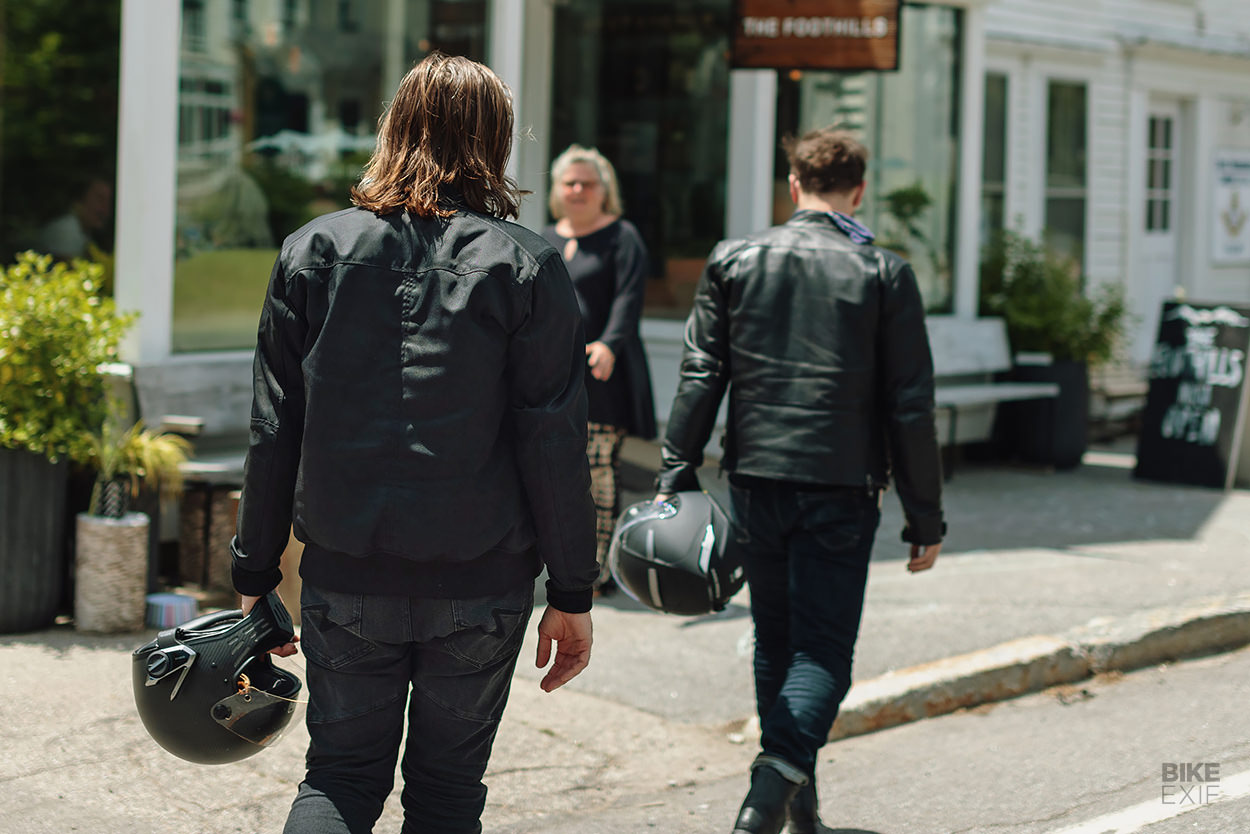
The absence of shoulder gussets makes reaching a little restrictive though. The jacket could benefit from a bit more stretch, but overall it didn’t interfere with my riding position. A note on sizing: The Oscar Bomber runs a bit large. I am 5’11” and 185 lbs, and a medium fit just right. A large would have offered a bit more reach in the arms—but would otherwise have been way too big.
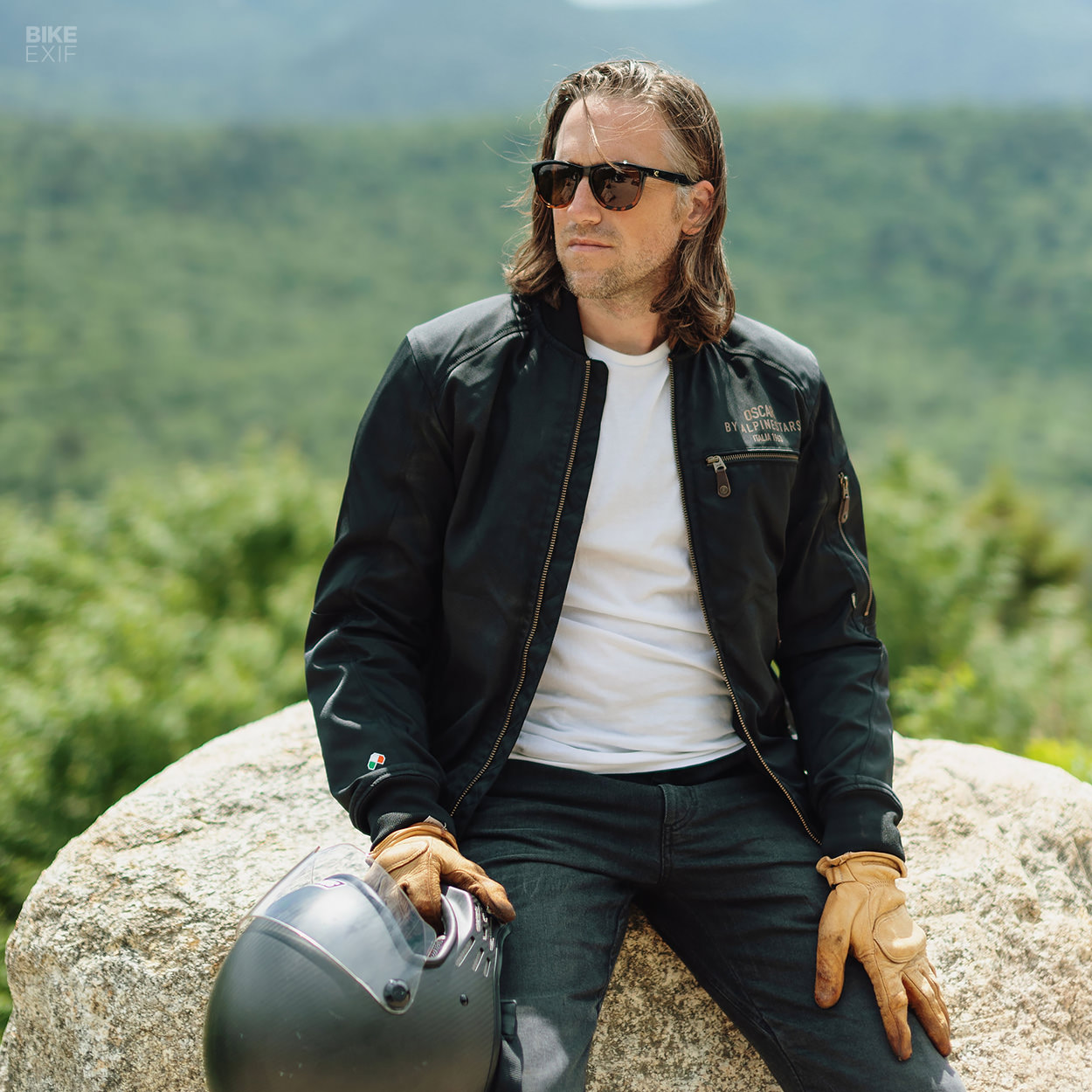
We experienced 40-degree temperature shifts during our trip (between 50 and 90 degrees), and while the Oscar Bomber lacks any sort of air ventilation, it does have a removable liner. The liner provided enough comfort for hotter riding, and was plenty warm enough when the temps dropped.
Overall, the $250 Oscar Bomber certainly leans more towards fashion than function. But if you’re looking for a fashionable jacket made by folks who have staked their reputation on protection, it’s a great middle ground. [Buy]
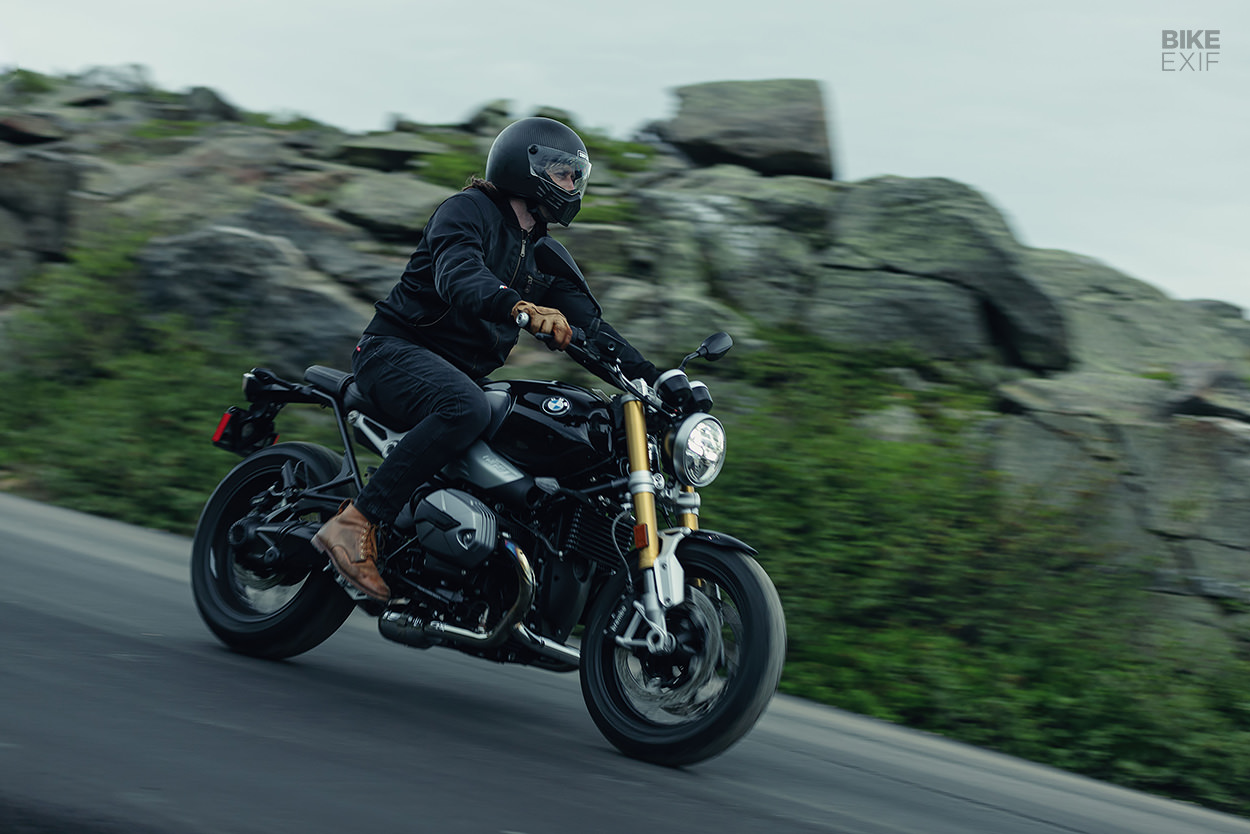
Pando Moto Boss Dyn 01 jeans There’s a sweet spot in the middle of the Venn diagram for motorcycle jeans: they should keep you safe if things go south; they must be comfortable enough to justify wearing between rides; and they can’t be priced so high that you’ll miss a mortgage payment. The Pando Moto Boss Dyn 01 jeans are a contender vying for that sweet spot.
They’re built from 12-oz super-stretch Cordura denim, and feature something called ‘Coolmax technology.’ The high risk abrasion and impact zones are reinforced with an interlock knit of 65% ultra-high-molecular-weight polyethylene. In layman’s terms, it’s a high-impact resistant fabric, that can quite literally save your ass for a claimed 92 meters or 6.7 seconds of slide time.
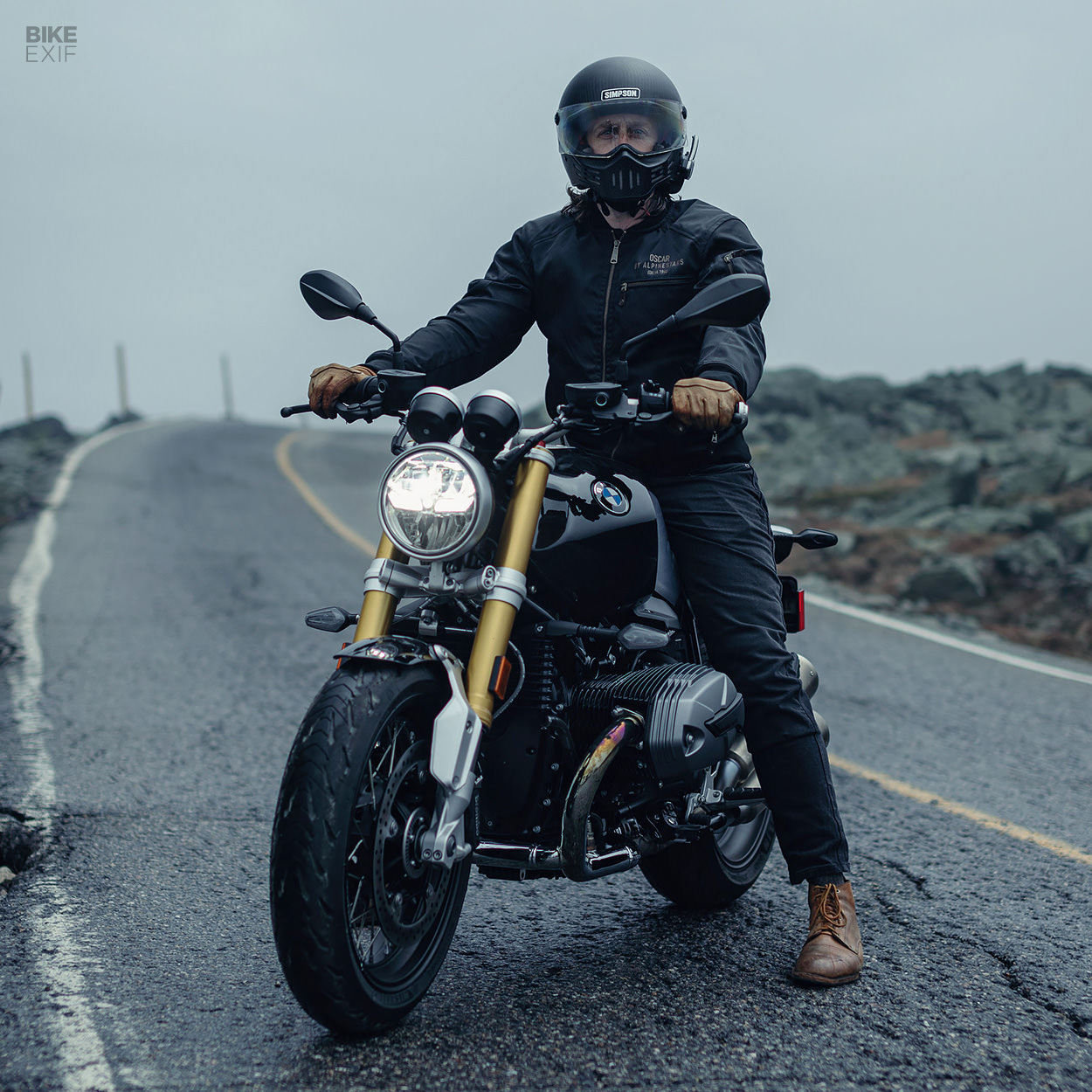
The Boss Dyn 01s also come with removable SAS-TEC TripleFlex CE-approved knee and hip armor, and two options for positioning them for more comfort. Safety? Check.
As for comfort and style, the Boss Dyn 01s are a charcoal black and have very minimal branding. They are slim fit jeans, which means they are pretty form-fitting, but the super-stretch Cordura makes them as comfortable as any casual jeans I’ve worn.
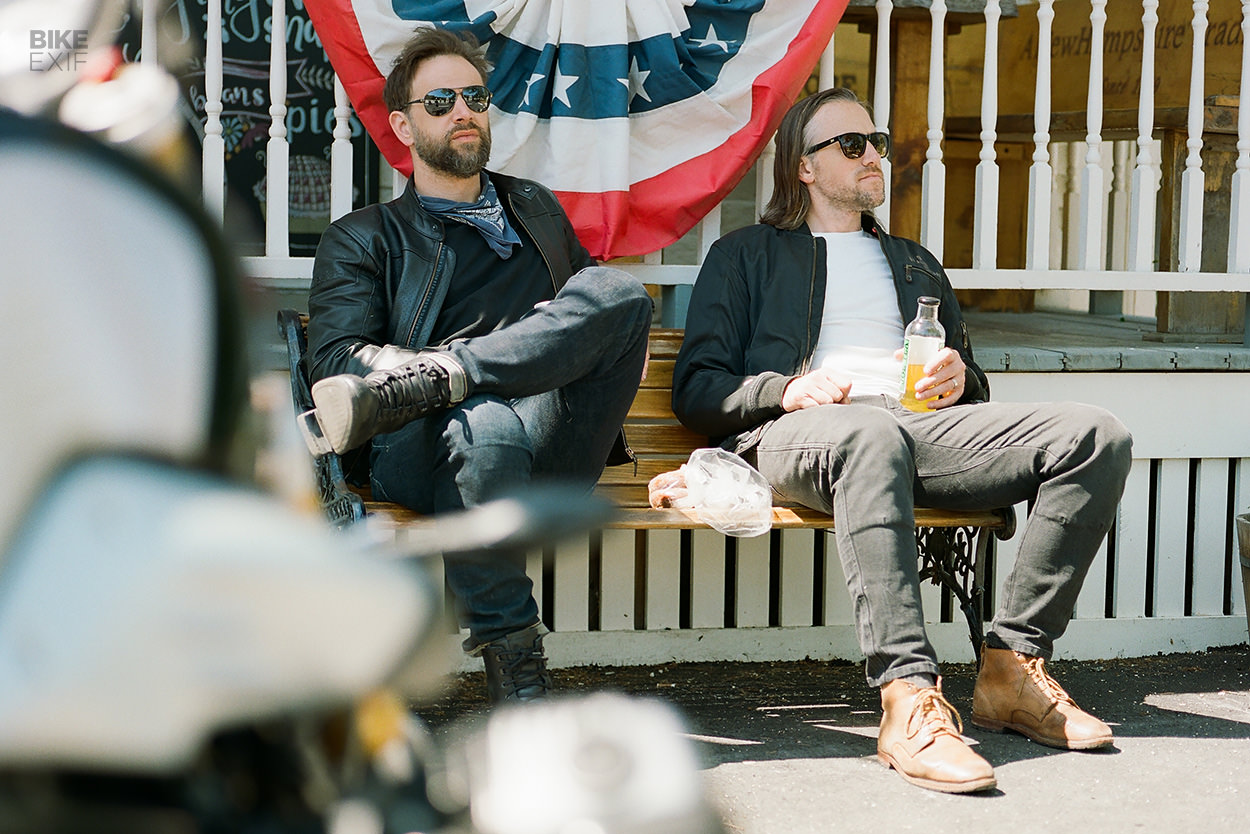
I normally wear a 33/32, and the pair I wore were 34/32. I’ll size down to a 32 next time though—after a full day of riding they started to stretch a bit more than I’d prefer, and created a bit of a saggy diaper look. On the bike, the flex is welcome and never left me needing to re-position myself. Wearing protective gear that doesn’t constantly remind you that you’re wearing it is a huge plus in my book.
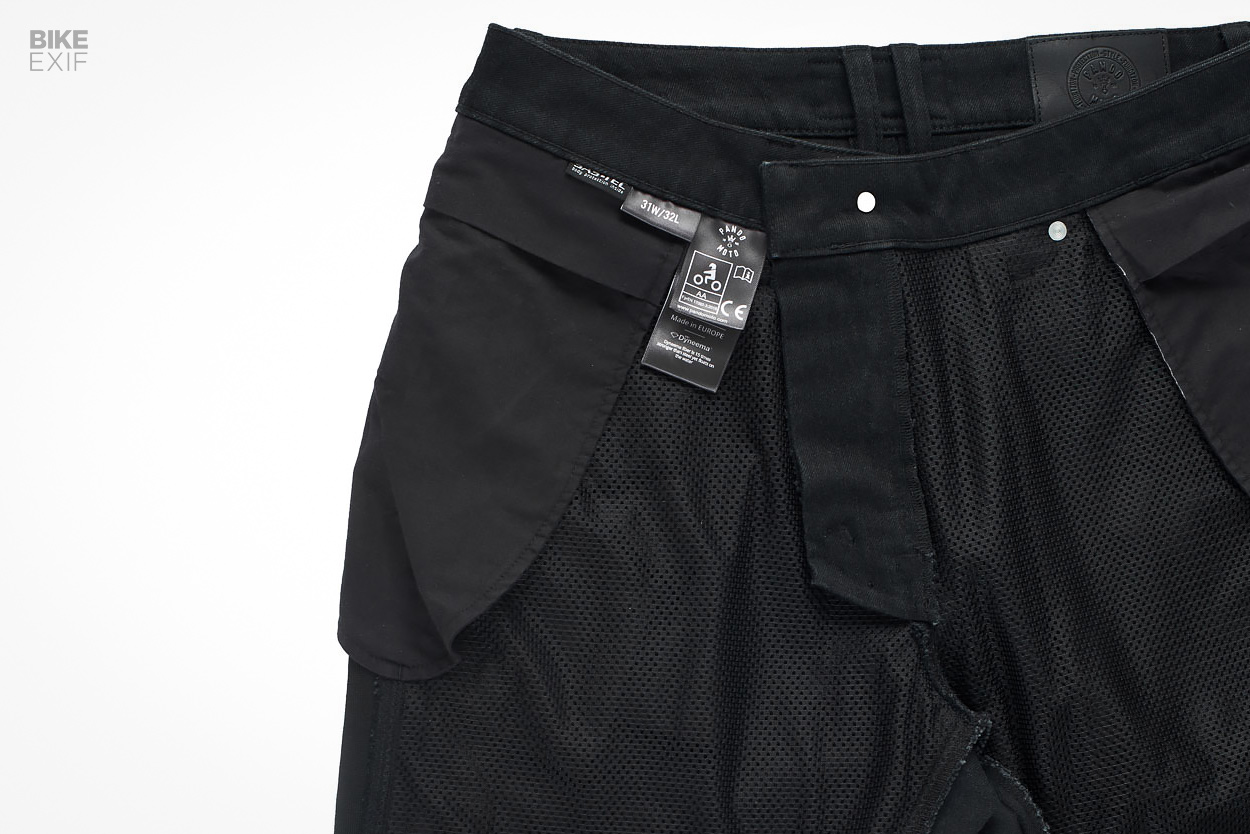
Coolmax is a breathable, high-wicking, fast-drying fabric that keeps temps down where the sun don’t shine. But it creates an oddly unpleasant feeling the first time it touches your skin—akin to putting on cold, damp jeans. The feeling goes away quickly though, and I rode in near-90-degree weather without feeling swampy. So the benefits are worth the initial shock.
So the Boss Dyn 01s are safe and comfortable, but there is a catch—they come in at €289 (around $340). That would be a tough pill to swallow, if these jeans weren’t so versatile. [Buy]
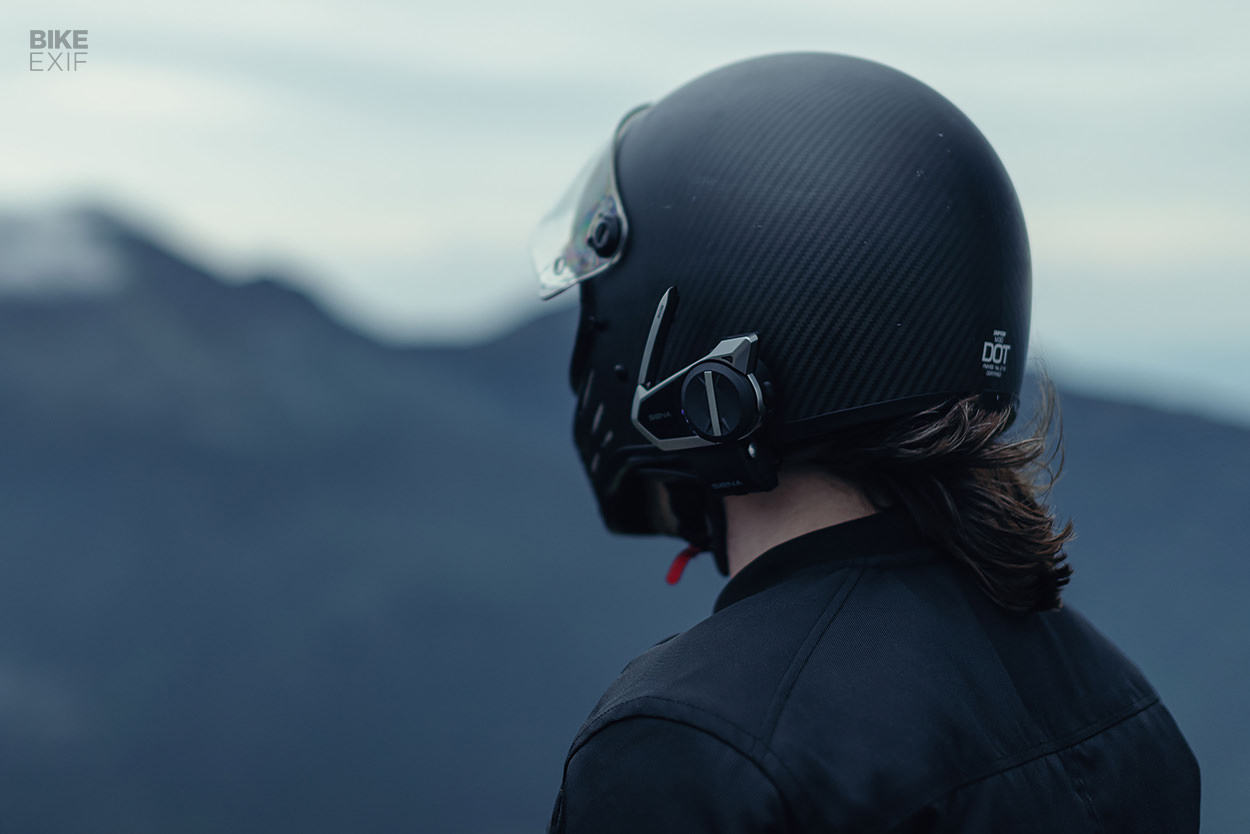
Sena 50S in-helmet comm system Riding with an in-helmet comm system is a marked way to increase safety during group rides. But there are many reasons to run in-helmet comms even when riding solo: getting turn-by-turn directions, listening to music, or even taking a call. Or, if you’re in the business of regularly shooting photos and video while riding like we are, a dedicated comm system can keep both you and your photographer safe on the job.
We’ve rocked Sena systems for years, and in some instances it’s been a literal life-saver for sharing information about road hazards, erratic drivers, or emergency stops. Sena’s newest 50S system allows you to communicate in a ‘Group Mesh’ intercom setup, that is closed and limited to only particular users. Or you can use their new ‘Multi-Channel Open Mesh’ setup, that operates more like an open CB radio network.
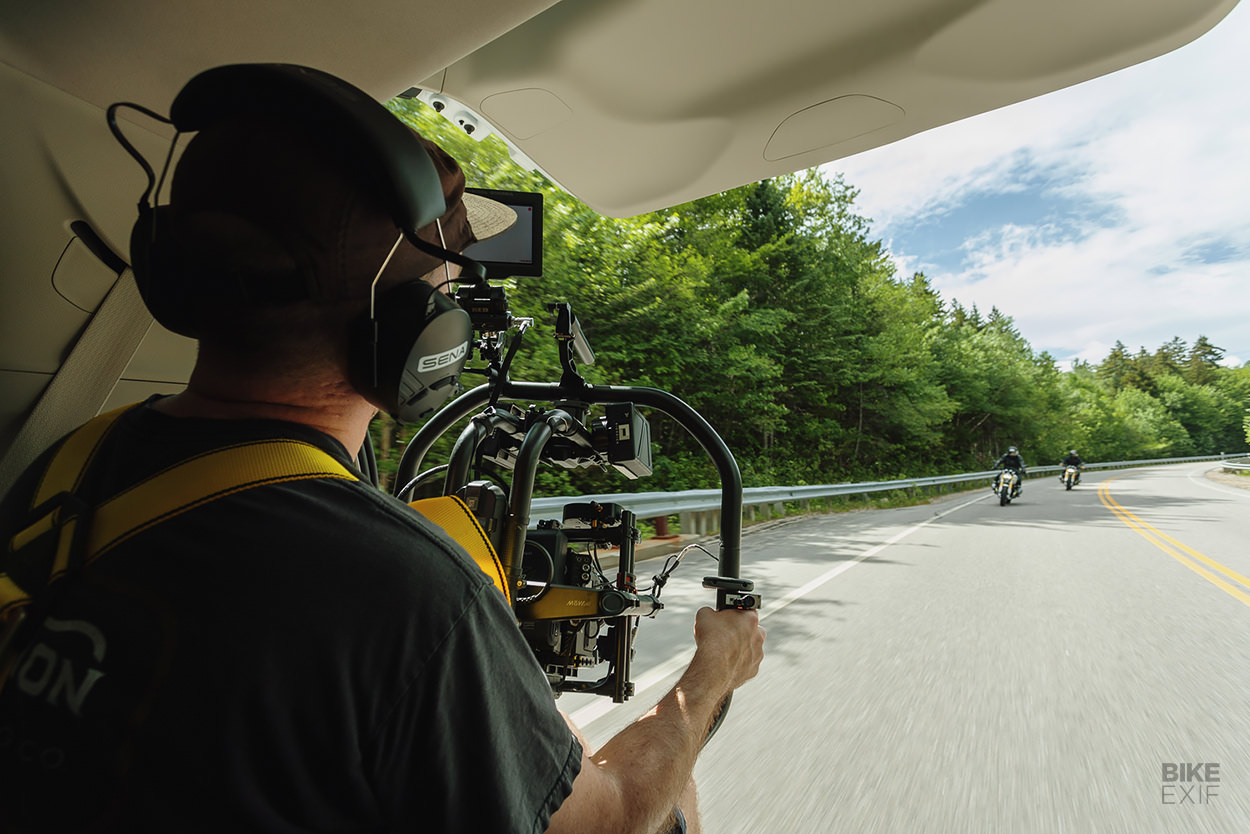
For our recent shoot around the state of New Hampshire, we opted to use a system of two 50S units for the riders, and two of Sena’s industrial Tufftalk Lite units for our van driver and our photographer/videographer. The Tufftalk Lite units are designed for industrial usage and are worn like over-the-ear headphones. This allowed us to receive instructions from the photographer, and also talk to the driver to control speed and handle sudden direction changes.
While we’ve used the private Mesh setup before, we opted for the Open Mesh system on this trip. Because it lets users easily link up with the push of a single button, there were no added complications of trying to sync up everyone on a closed group. And that helped us stay within our strict time schedule.
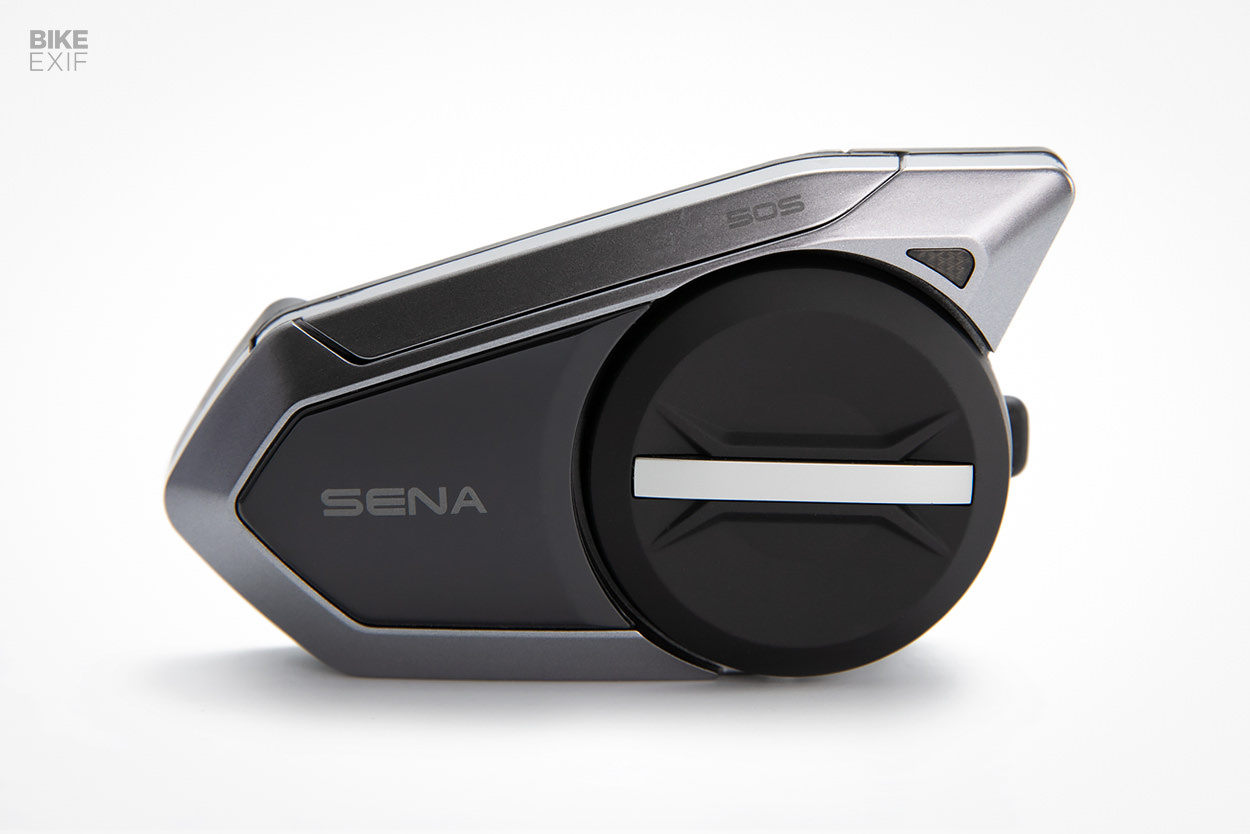
Sena claims up to five miles of range (or six riders at one mile apart each). However depending on your environment, and objects that may come in between you and your group like twists turns and elevation changes, the range can vary. In our experience, if you can see the rider out in front of you, you should have no problem hearing and communicating with them.
Wind noise is no problem either with Sena’s updated HD speakers, and advanced noise control for cancelling out unwanted sound.
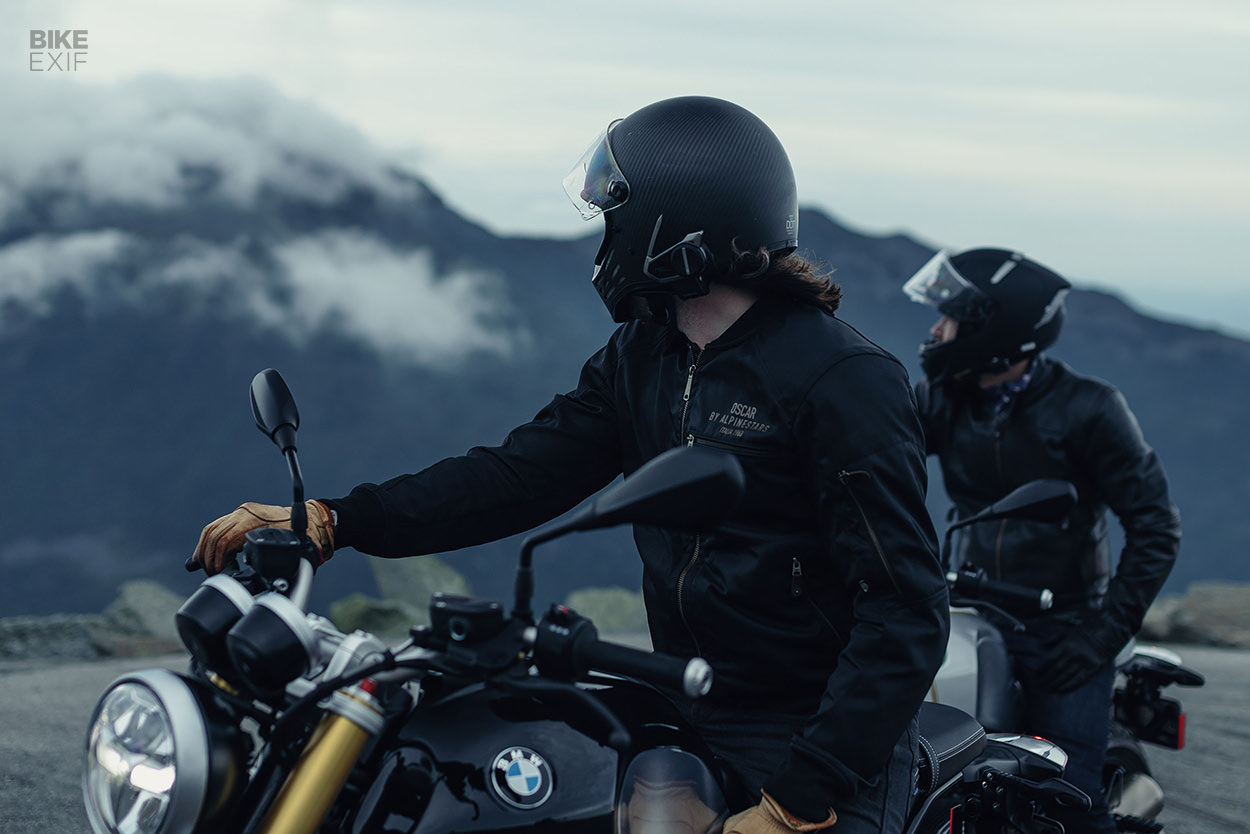
Both the the 50S and the Tufftalk Lites have a phenomenal battery life. We shot for stretches of up to eight hours a day with only one instance where batteries needed to be recharged. Usage may vary though, depending on how much you use other features—like Bluetooth connectivity to your phone for calls and music, or the FM receiver on the 50S. [Buy]
Images by Josh Bogardus and Dan Olivares